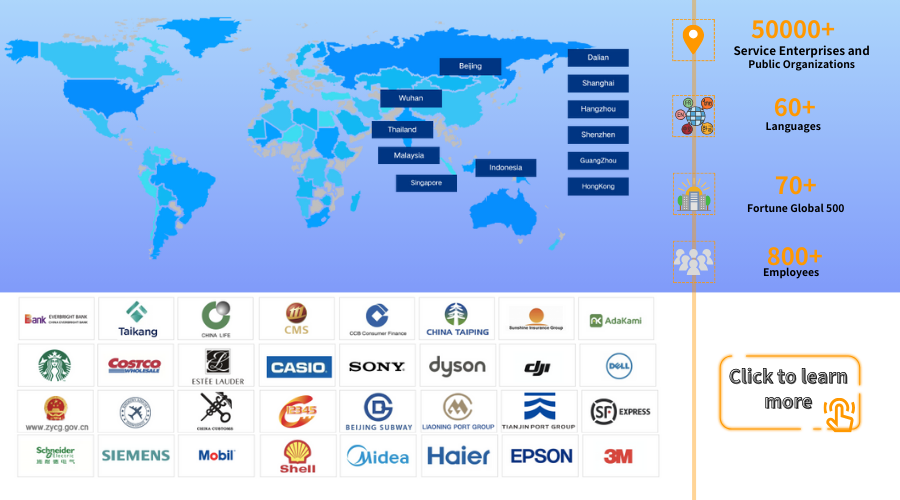Call Center: Everything you need to know
Article Summary:This essay aims to provide a comprehensive overview of call centers, covering their purpose, operations, challenges and the future outlook of this industry.
Table of contents for this article
Introduction
Call centers have become an integral part of modern business operations. Whether you are calling a company for customer support, making an appointment, or paying a bill, there is a good chance your call will be routed to a call center. For many businesses, call centers are on the front lines handling customer inquiries and requests. However, the inner workings of a call center can be complex. This essay aims to provide a comprehensive overview of call centers, covering their purpose, operations, challenges and the future outlook of this industry.

What is a Call Center?
A call center is a centralized office used for receiving or transmitting a large volume of requests by telephone. They employ agents who handle incoming and outgoing customer calls. The main functions of a call center include: customer service, technical support, order taking, sales, appointments and collections. Call centers use sophisticated phone and computer systems that can automatically distribute large volumes of calls to available agents. They help businesses scale their phone-based customer interactions in a cost-effective manner.
Call Center Operations
At the core of any call center is a private branch exchange (PBX) phone system that routes incoming calls to available agents. Agents are equipped with a computer terminal, headset and phone. Their screens display call information and allow them to access customer records. Advanced systems also track call volumes, wait times and agent performance metrics in real-time. Calls are distributed based on various criteria like queue priority, skills and availability. Agents are trained to follow standardized scripts and procedures to handle different call types efficiently. Quality monitoring and coaching helps improve agent performance over time.
Challenges in Call Centers
While call centers deliver scale and standardization, they also face unique operational challenges. High call volumes during peak periods can lead to long wait times, impacting the customer experience negatively. Staff turnover is also relatively high due to the stressful nature of the job. Hiring and training new agents on a regular basis increases costs. Ensuring consistent service quality across a large workforce can also be difficult. Technological issues like system glitches further compromise productivity. Call centers require robust infrastructure, trained managers and processes to overcome these hurdles.
Future of Call Centers
With rapid changes in communication technologies, the call center industry is continuously evolving. Many centers are integrating more digital channels like email, live chat and social media to engage customers conveniently. Analytics is helping optimize operations through real-time monitoring and predictive capabilities. Automation through AI chatbots can handle basic queries independently, reducing agent workload. Work from home options are becoming common to improve flexibility and reduce overhead. As customer preferences shift to self-service, call centers will need to adapt while retaining their core function of addressing complex queries through human agents. Overall, call centers will remain vital for businesses but their operating models will undergo continuous transformation.
In this digital era, call centers play a strategic role in managing customer relationships at scale for organizations across industries. While the job is demanding, call centers also provide career opportunities for many. With proper infrastructure, training and process improvements, call centers can deliver excellent service while overcoming operational challenges. Looking ahead, technological advancements will reshape this industry significantly. However, the human touch through well-trained agents will continue adding unique value that is difficult for automation to replace fully. A deep understanding of call center fundamentals and evolving best practices will help businesses maximize value from these vital customer touchpoints.
Whether you’re just looking to set up your call center from scratch or researching alternative options to upgrade your contact center, Udesk’s AI-powered contact center solutions might be the right fit for both customer support and sales-oriented teams, empowering them with the tools they need to support clients across multiple communication channels or sell faster and more efficiently. What’s more, you can seamlessly integrate your contact center with your CRM or other business tools to keep all data in sync and enable your teams to be even more productive.
Take our Call Center for a spin—for free—to see how it can work for your business.
The article is original by Udesk, and when reprinted, the source must be indicated:https://www.udeskglobal.com/blog/call-center-everything-you-need-to-know.html
Call CenterCloud Call CenterContact Center

 Customer Service& Support Blog
Customer Service& Support Blog



